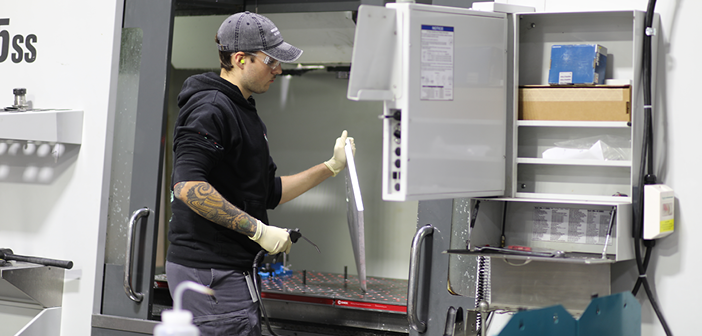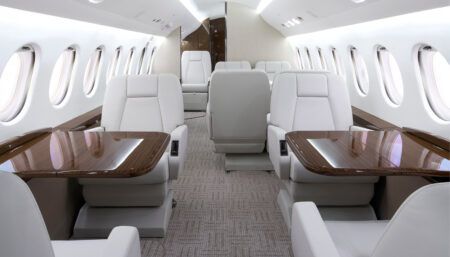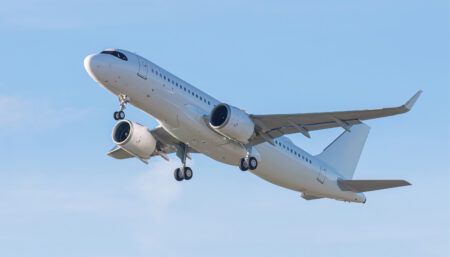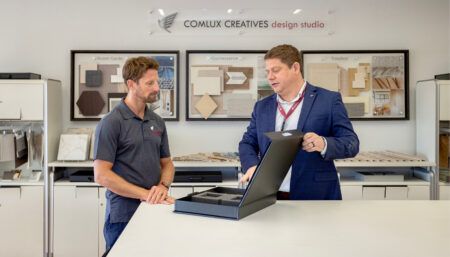The parts manufacturing and fabrication areas at Duncan Aviation have been expanded and reorganised to create a new division, Duncan Manufacturing Solutions (DMS).
DMS is currently serving in-house needs for Duncan Aviation projects and customers, as well as requests from aviation system and aircraft manufacturers. However, the company expects the area to grow in the future to provide services to companies in other industries.
Duncan Aviation has invested more than US$4m in the DMS facility, which was built adjacent to the company’s turbine engine overhaul shop in Lincoln, Nebraska, and has 21,000ft² devoted to machining, metal work and composite capabilities.
“The expansion is exciting, and our ability to create complex geometries with tight tolerances is impressive, but it really is an extension of work we have performed for nearly 38 years through our FAA PMA authorisation,” said Scott Stenka, manager of DMS.
Duncan Aviation has supported many OEMs by producing various interior components and bracketry. During a particularly active manufacturing period from 2009 through 2011, the company’s fabrication shop produced more than 26,800 parts every month.
Duncan Aviation added more sophisticated equipment to supplement its previous capabilities and machinery to allow for various CNC milling, waterjet cutting, metal press, engraving and heat-treating capabilities.
With the addition of the HAAS VF5, DMS will effectively double its milling output. The company said the HAAS UMC750 five-axis equipment allows for the machining of complex parts with great accuracy and minimal setups.
An Epilog Fusion Pro 48–Dual Laser Engraver has also been added. The company said this can achieve in minutes something that it would take 35-40 minutes to do with a mill. It doesn’t require a perfectly flat surface to remove paint or etch, and it is configured with both a CO2 and a fibre laser, allowing it to work with various materials.
In terms of heat treating, DMS brought its capabilities in-house with the addition of two Delta H Heat Treat Ovens. These are capable of heat treating aluminium, stainless steel, tool steel and titanium. The ovens are based on the most common size requirements for working with envelopes of 16 x 16 x 24in and 16 x 24 x 72in.
Another investment was the Omax 60120 Waterjet, which the company said replaces the existing water jet cutting machine, expanding the ability to fabricate sheet metal parts.
Other improvements impact composite repairs and manufacturing. The new positive airflow composite shop is equipped to handle prepreg composite repairs and manufacturing. It features a 1,150ft² clean room and a 12 x 24ft paint booth with a mixing room. The company added that more advanced repairs and manufacturing capabilities are accomplished with the purchase of the ASC AutoClave. This machine has a 6 x 15ft working envelope. It is used to cure carbon fibre, Kevlar and fiberglass materials to repair or construct new parts.
A new DMS Hexagon Absolute seven-axis arm was installed to inspect all of the items produced by DMS. The seven-axis arm is a multifunctional measuring tool for precision, first-article inspections and reverse engineering when paired with the RS6 laser scanner. The arm is mobile and can be brought to an aircraft when needed.
Quality control measurement equipment and inspection processes have also been developed by DMS team members. The facility is working toward AS9100D certification and NADCAP accreditation to allow future government contract and parts manufacturing support work.
DMS is continually researching other manufacturing categories, including lathe and tubing assembly, to potentially increase capabilities in the future.





